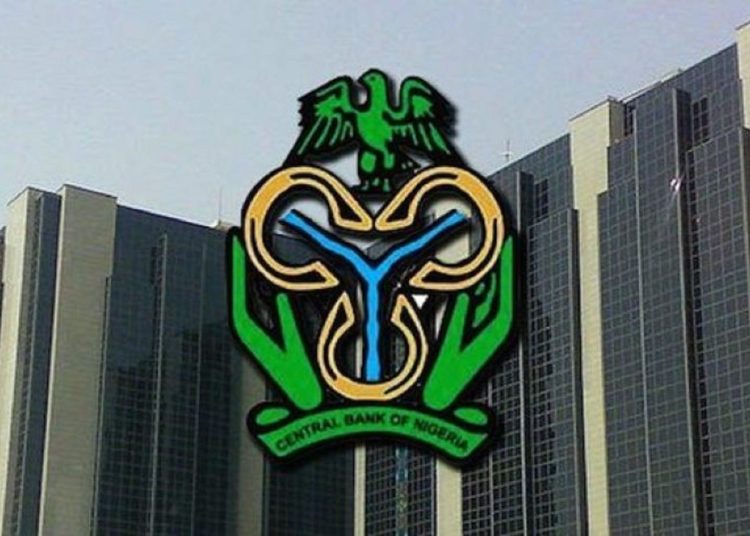With the amount spent on debt servicing in the first four months of 2022 outweighing the revenue of the country, analysts have projected that the Central Bank of Nigeria (CBN) financing of government through ways and means would hit N23.2 trillion by end of the year.
This is as BudgIT, a civic-tech organisation leading advocacy for transparency and accountability in Nigeria’s public financial management, has expressed concerns over the poor fiscal performance of the federal government’s 2022 budget and the growing subsidy payments.
Last week, the Ministry of Finance released the fiscal performance report of January to April 2022 during the recently concluded public presentation on the 2023-2025 Medium Term Expenditure Framework (MTEF).
According to the performance report, the federal government’s aggregate revenue for the four month period settled at N1.63 trillion underperforming the prorated target of N3.23 trillion by 50.9 per cent.
The report also showed that the amount the federal government spent on servicing its debts rose by 47 per cent to N1.94 trillion as against N1.32 it had envisaged for the period. This puts the debt service-to-revenue ratio at 119 per cent, indicating that revenue generation can no longer cover debt service obligations.
Overall, the fiscal deficit printed NGN3.09 trillion and analysts project that at this run rate, the fiscal deficit would settle at an estimated N9.27 trillion by the end of the year.
Commenting on the debt service to revenue of the government, Senior Macroeconomic Strategist at Cordros Capital, Abdulazeel Kuranga noted that the higher debt service compared to revenue also implies that the FGN is borrowing to service parts of its debt. “Consequently, it suggests that all non-debt and capital expenditure of the government now come from borrowed funds.
“The delicate situation the FGN has found itself implies higher borrowing from domestic and foreign sources in future periods. However, we maintain that it is unlikely that the FGN will access the external market to issue Eurobonds, given the current level of yields.
“Instead, we expect borrowings will be channelled to the domestic debt market through FGN bond sales and Treasury Bills overallotments, primarily, while the synergy between the CBN and fiscal authorities implies continued and increased usage of the Ways & Means balance.
“Accordingly, we envisage increased domestic borrowing and reliance on the CBN’s Ways & Means (W&M) as external borrowing conditions are presently unfavourable. Indeed, the actual W&M in six month of 2022 was N2.45 trillion, according to the CBN.”
Analysts at Agusto&Co had earlier noted that government borrowing from the CBN is expected to rise further to N23.2 trillion, pushing federal government’s local currency debt to circa N46 trillion by the end of this year, thus limiting the supply of debt securities.
Kuranga noted that as global monetary tightening means increased debt service costs on foreign debt, the government may look towards increasing its local borrowings alongside the W&M from the CBN.
“Higher foreign borrowing implies higher interest rates on the debt over the medium term. However, it could lead to a point whereby higher rates will not be enough to appease foreign investors.
demand further devaluation of the local currency, leading to unabating pressure on the local currency.
“In addition, higher foreign borrowing also increases the risks to Nigeria’s future debt repayments, with the loans susceptible to interest and exchange rate risks. The significant implication of the increased domestic borrowing is that the medium-term expectation for yields in the fixed income market would remain biased to the upside.”
It would be recalled that the International Monetary Fund (IMF) had warned that the country may be spending all its revenue on servicing debt in the next four years if the rising debt level is not cautioned.
According to BudgIT, the most pressing concern is the debt service-to-revenue ratio, which has reached alarming levels within the first four months of 2022. The federal Government has revealed last week that the country’s current debt service, which stood at N1.94 trillion from January – April 2022, is over 100 per cent of the nation’s revenue which was N1.64 trillion, within the same period.
“This is in spite of warnings given by the International Monetary Fund (IMF) that Nigeria would be spending over 100% of its revenue on debt service in 2026. Unfortunately, those predictions are Nigeria’s current realities.
BudgIT, had earlier in the year called for several reform issues bordering on Nigeria’s public financial management regime that affect the very core of governance, separation of powers, expenditure efficiency, and the livelihoods of millions of Nigerians; 83 million of whom live in extreme poverty.
“Four months later, some of those same challenges exist, with additional ones that-if not properly managed, spell fiscal crisis for an already impoverished nation. In particular, the debt service spending is only N93.6 billion naira less than the combined total personnel and capital expenditure for the period under review.
“Also alarming are the expenditure targets for the Tertiary Education Trust Fund (TETFund), which have only been 15 per cent of the total N5.10 billion for the period under review. There is no gainsaying that the fortunes of the most populous black nation on earth, Nigeria, have worsened in the last eight months after the 2022 budget was passed” a statement from BudgIT read.
BudgIT’s Country Director, Gabriel Okeowo, noted that “despite being confronted with a myriad of challenges ranging from: the five-months and counting ASUU strike which has crippled Nigeria’s tertiary education; to an 13-month high inflation of 17.7 per cent which has pushed millions of more Nigerians into poverty; a drastic decline in Nigeria’s oil production which has displaced Nigeria as Africa’s biggest crude oil producer; a massive increase in the country’s petroleum subsidy liabilities (which has crowded out investment in critical areas of the economy, obliterated federal transfers to subnational units, and skyrocketed the country’s debt to over N41.6 trillion naira); a complete breakdown of law and order in several cities across the federation, which has encumbered the inflow of foreign direct investments and increased the cost of doing business; Nigerians are waiting with bated breath for the national budget to begin to bring about the relief and positive change it was claimed to have harboured.”
“BudgIT posits that, with 2022 being a pre-election year, alongside the growing fiscal threat posed by subsidy payments and the debt service-to-revenue ratio; all the latter will negatively impact Nigeria’s budget credibility, cripple service delivery in critical social sectors of the economy and impede needed investments in productive sectors, thereby stunting economic growth.
“It is in light of the above that we call on all well-meaning Nigerians, CSOs, media, the private sector, the international community, and reformers to join the call for the Federal Government to do the following: Discontinue indiscriminate borrowing through Ways and Means, which is creating a ballooning set of interest payments, running parallel to the external debt, as well as increasing the money supply and creating more monetary volatility; check the oil theft that is now commonplace in the petroleum industry, and has encumbered the countries ability to meet its production quotas-the latter having fallen to 1.25 million barrels as at May 2022; ramp up the remittance of operating surpluses by MDAs and GOEs to boost federal government’s independent revenues which is currently underperforming, and take considered action to reform subsidy, this achieves the twin objectives of having citizen buy-in and revenue savings that are channelled into priority areas.











